 Your new post is loading...
 Your new post is loading...
"Albert Einstein nailed it–'We cannot solve our problems with the same thinking we used when we created them.' That truth will decide whether we develop a 21st-century friendly educational system or continue to tinker at the margins of school."
"Do you really know something if you can’t remember it? I had a conversation with a fellow educator on this subject one semester, and we both came to the conclusion that knowledge relies almost exclusively on a student’s ability to remember what she has learned. Proof of knowledge comes from demonstration of knowledge; if you can’t recall a fact, then for all intents and purposes you never learned it. But where does that leave intelligence?"
Is text complexity a new way to look at text? This post notes that the Common Core State Standards have explicitly identified text levels, which has not been done in the past. The seven actions below are detailed in the post, and you may choose to download it as a pdf. Action 1 - Focus on Knowledge Action 2 - Create connections Action 3 - Activate Students' Passion Action 4 - Develop vocabulary Action 5 - Increase the Volume Action 6 - Build Up Stamina Action 7 - Identify Benchmarks
How do you train an innovator? Which schools are doing it better than others? Are teachers equipped with the new skills required to educate students in this decade? This post explores these questions and offers five "essential education and parenting practices that develop young people's capacities to innovate." The first one is "Learning to work collaboratively (innovation is a team sport!)." The concepts of information and knowledge are also explored, beginning with the statement "Information may be free but knowledge also includes understanding, problem solving, communication, and collaboration, none of which is free." Are we addressing these 21st century skills as our students move from elementary school through high school, or our teachers "...compelled to teach to the tests for accountability purposes..."? Additional topics are also explored, including AP testing (and the move to have students "demonstrate that they can apply knowledge learned and not merely regurgitate it" to the fact that many when you look at CEO's of most major companies "the majority did not go to an Ivy League school for undergraduate..." An article that will make you think...
"Knoema is your personal knowledge highway. The basic idea is to connect data with analytical and presentation tools. As a result, we end with one uniformed platform for users to access, present and share data-driven content. We have 515 datasets, 17,760,000 time series, 242,000,000 data points available and it's growing. You can browse through datasets by topic, source, name or publication date. Selected time series can be easily visualized as table/chart."
You are never too old to set another goal or to dream a new dream. C.S.Lewis There are whispers in corridors. Wanderings and wonderings. There are twists and bends. The unexpected, the predicted,... A look at how digital story telling provides students a space to tell their story, what has value to them, stories that will help begin conversations that may lead to new areas of discover and reflection. Rich with resources and ideas this post has many valuable ideas.
As educators, administrators and all those with a stake in education ponder, reflect, consider and urge a change in educational frameworks, there are other social changes happening as well. "Never have human beings had so much open contact with others throughout the world on a 24/7 basis, yet at the same time, they are increasingly isolated in their urban environments. Nevertheless, there are connections." A thought provoking article that looks at trends in education, types of networks that exist today and how their impact, and much more.
Asking questions is a great way to enhance the learning process both in school and later on in life. Unfortunately the human fallacy here is that we sometimes don't feel the need to truly think before we ask these questions, which can lead to frustration, disappointment, and resentment—everything except learning the knowledge we seek—when we don't get the answer we were expecting. There is definitely a science behind asking smart questions, and this article lays it out rather nicely. PLEASE NOTE, THIS LINK IS NOT WORKING. WAS RESCOOPED ON MARCH 28TH WITH NEW LINK THAT WORKS. Or click on this link: http://faculty.gvc.edu/ssnyder/121/Goodquestions.html
This is a virtual place for folks interested in learning to "operationalize TPACK" (Technology, Pedagogy, and Content Knowledge) via curriculum-based learning activity types ('ATs') to get up-to-date information, and (more importantly) participate in the vetting and refining of the activity types in each of the curriculum areas in which activity type development is happening.
Earlier this year our group adopted the TPACK model of technology integration. What is TPACK you ask?
Wolfram|Alpha is more than a search engine.
|
"Teachers are the arbitrators of knowledge and culture. Knowledge and culture are each dynamic, endlessly crashing and churning. This makes teaching significantly important and difficult work, and can leave teaching—as a craft—wide-eyed and nonplussed in response. Worse, those outside the bubble of education can understandably struggle to understand the problem. What are the teaching in those schools anyway? How is it any different from when I was in school?"
"Do you know this guy on the left? Of course you do! The man, and in particular that photo, are icons. They represent creativity itself. Yet Einstein is both an inspiration and an intimidation. His legend, unfortunately, has obscured much his story’s true value. He was, in many ways, unexceptional, but nevertheless managed to see the world differently and led others to do so as well."
Project Based Learning - there are many views on this subject. This post provides a great diagram that helps to see the continua that one may consider when designing PBL. It looks at six issues: Trust (locus of control), Questioning, Collaboration, Content, Knowledge and Purpose. For example, with Trust the continua moves from teacher directed to student directed. Based on the project you may find that the location varies. A short description is provided for each of the six issues that you may want to consider as are additional resources.
"Knowledge – or what is accepted as useful knowledge by a certain community – is maintained in educational institutions. We may perceive by this that this maintenance of knowledge is a powerful form of control, and in effect, a maintenance of reality." Yet, today the question is asked what is learning? Has it changed? Is the education system being remade? This post explores these questions any more with many resources as well as a video 'Education Evolution.'
Schools have always been charged with the task of producing good citizens. But how has our definition of a "good citizen" changed over the ages? What skills should we be teaching? What knowledge do our students need to participate in the world as it is today, a world that has been transformed by technoloyg? "One of the challenges and important priorities for K-12 today has to be broadening our understanding of what it means to be a digital citizen, so that we're talking about young people as producers and managers of information and perspectives, and not simply as people we need to keep safe and civil..."
The Harvard Education Letter looks at a number of apps and discusses different ways to have students demonstrate their knowledge. Ideas include using Twitter to "give kids a firsthand sense of history," a variety of math apps that help explore different concepts from telling time to geometrical proofs; tools for auditory learners like Librivox and much more.
We say information is free, but does that mean it's all easy to learn? How can you become a free-range learner? The rough talk that goes with this presentation can be found here: http://bit.ly/nFKWrO
"What’s the key to effective learning? One intriguing body of research suggests a rather gnomic answer: It’s not just what you know. It’s what you know about what you know." This article looks at research in this area and provides a list of questions that one might use to have "students assess their own awareness." It also refers to the PISA report, stating “Students who use appropriate strategies to understand and remember what they read, such as underlining important parts of the texts or discussing what they read with other people, perform at least 73 points higher in the PISA assessment—that is, one full proficiency level or nearly two full school years—than students who use these strategies the least."
Knowing more about how kids' brains function and acquire knowledge can help teachers maximize learning opportunities for their students, says Wendi Pillars.
The 21st Century Fluencies are not about technical prowess, they are critical thinking skills, and they are essential to living in this multimedia world. We call them fluencies for a reason. To be literate means to have knowledge or competence. To be fluent is something a little more, it is to demonstrate mastery and to do so unconsciously and smoothly.
|
 Your new post is loading...
Your new post is loading...
 Your new post is loading...
Your new post is loading...





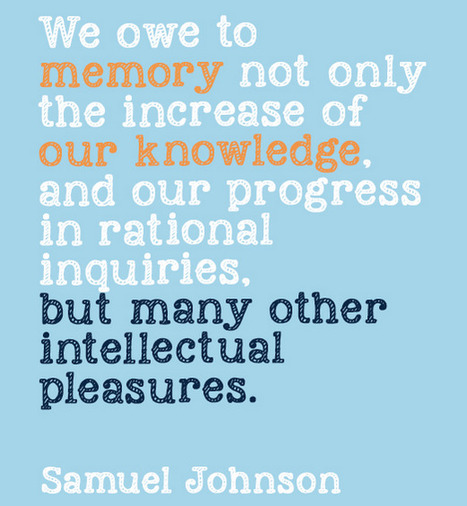
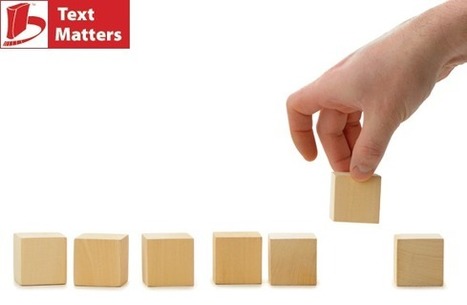
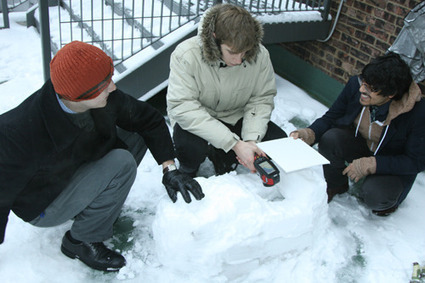

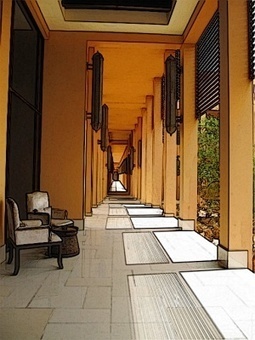

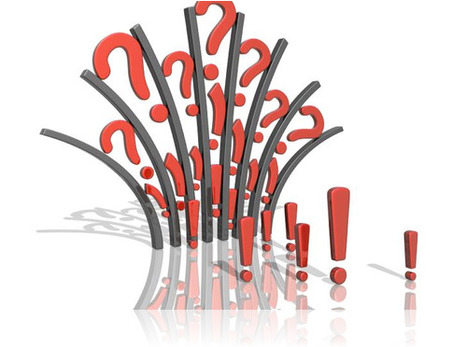
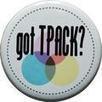
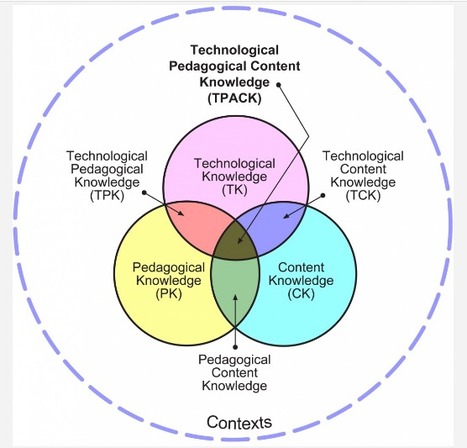

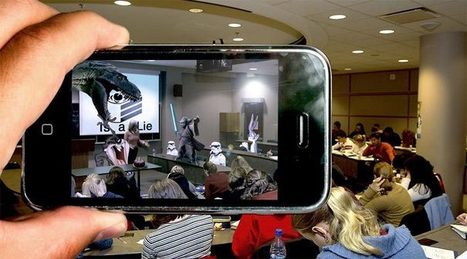

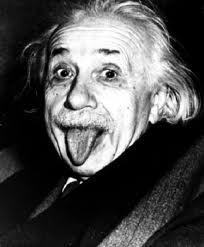



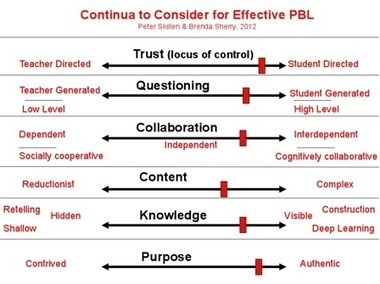

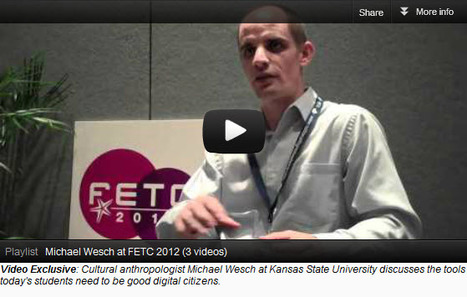

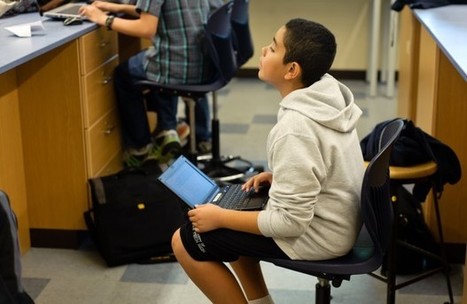
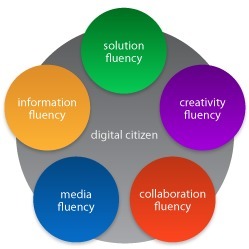





Do words hold us back? Do they have the potential to keep us in place rather than allowing us to move forward? This post looks at ten words and discusses how each may "influence our behavior and keep us in a box." The ten words are:
1. Lesson
2. Knowledge
3. Rigor
4. Soft Skills
5. High & Low Students
6. 0ff-Task
7. Learning Styles
8. Summer Learning Loss
9. Special Education
10. Brain-Based Learning
Below is an example of how one of these words is explained.
What do you think of when you hear the word off-task? What does research tell us about six-year olds and their ability to focus on one task? The explanation shares that young students who have more time for play also have higher executive functioning skills, yet in the classroom we ask them to sit and to focus one area. In many schools the amount of time for free play and recess has decreased so we can focus on ELA and math.
Learn more about these words and see if you agree with the author. Do you think these words are holding us back?